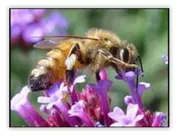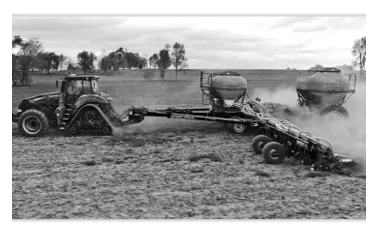by Dick Kurtz

In 2023, the NY Legislature passed the Birds and Bees Protection Act. Today that act sits on Governor Hochul's desk unsigned.
The Birds and Bees Protection Act bans Neonicotinoid coatings on seeds. Neonicotinoids (Neonics) are a class of chemical pesticides that have been shown to cause extreme harm to a wide range of insects and other life, including pollinators. They are widely believed to be a major factor in Colony Collapse Disorder, which has decimated honeybee populations. This bill bans the use of neonics on seeds planted on thousands of acres of NY farm fields.
There are reports of heavy lobbying by agribusiness of Gov Hochul not to sign this legislation.
Agribusiness' arguments need refuting:
Agribusiness says that coated seeds use very little Neonics, which is buried in the ground with the seed where it can't harm flying pollinators. The facts are that many large planting machines use pneumatic air delivery of the seed to the ground. Neonic coatings on the seeds are scraped off during delivery and blown out with the air. That cloud of dust sometimes seen around planters is Neonic laced dust which the wind carries into neighboring areas.
Agribusiness claims that only small amounts of Neonics are used on coated seeds, so they're relatively harmless. That is refuted by the fact that Neonics can persist in the soil for many years, building up concentrations with each successive application.
Agribusiness says that banning of coated seeds will increase the use of sprayed Neonics, which are not banned. The facts are that many fields would not have any outbreaks of the targeted pests, or very minor ones, and there is no need for either coated or sprayed use of the pesticides.
Agribusiness says that if it's OK with the EPA, it should be OK with NY. But many European countries, leaders in environmental protection, have banned Neonics, with good reason. Agribusiness says that if it is to be considered in NY, then the DEC should lead it, not Legislation. Yet the NYS DEC struggles: NY citizens involved in other environmental issues realize that the DEC is sometimes a rubber stamp for business interests, citing lack of staffing, with DEC's environmental protection responsibilities secondary.
Because most large chemical companies (BASF, Bayer, etc) own the big agricultural seed companies, they have a powerful incentive to sell "value added" seeds modified by GMO tinkering and coated with the chemicals that they produce. The farmer is reassured by the company agents of the seeds’ efficacy, and reminded that they can grow with no risk of pests. A few dollars extra paid for seeds with protection means no hassle tending to a possible outbreak during the growing season. So the busy farmer accepts that.
When you drive in your vehicle, you may be observing the "windshield test": How many bugs get squished on the windshield. And you likely know there are a lot fewer now than years ago. Those "bugs", whether they're the bees that pollinate plants, or the other insects that are the food for birds, are all declining. And so, consequently, are the birds that depend on them. In recent years, many species are now at mortal risk.
At press time, the Birds and Bees Protection Act is unsigned by Governor Hochul. Both Newsday and the Buffalo News are asking the Governor to sign the act. She must sign or veto by the end of December. You can make your position known. Contact the governor's office with your thoughts. (518-474-8390).
Do it soon. December is here.
